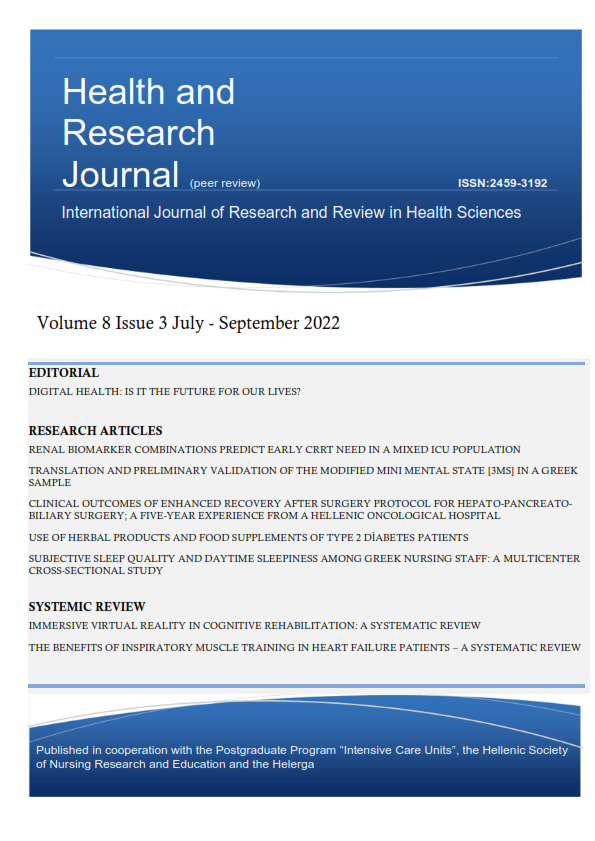Subjective Sleep Quality and Daytime Sleepiness Among Greek Nursing Staff: A Multicenter Cross-Sectional Study

Abstract
Background: Lack of sleep and sleep of poor quality contribute to fatigue, decreased productivity, increased risk of accidents and errors at work.
Aim: The aim of the current study is to further investigate the relationship between sleep quality and daytime sleepiness to demographic and work environment characteristics among the nursing stuff.
Method and Material:A cross-sectional study was performed on nursing staff, in Athens, from July 2018 to June 2020 focused on characteristics related to poor sleep and sleep disturbance.
Results: This cohort investigated 70% poor sleep and 25% excessive daytime sleepiness among nursing staff. Sleep disturbance was related to young age and serving as a ward nurse. Personal as well as departmental and institutional factors affected sleep quality but not excessive daytime sleepiness.
Conclusion: Health system managers and nurse leaders should take under consideration not only personal, but also departmental and institutional characteristics when taking support measures to maintain nurses' mental health and patient’s safety.
Article Details
- How to Cite
-
Mantzanas, M., Chrysikos, D., Giannakodimos, I., Chelidonis, G., Drymousi, P., Pechlivanidou, E., Pikoulis, E., Basios, N., Zografos, C. G., Zografos, G. C., & Karavokyros, I. (2022). Subjective Sleep Quality and Daytime Sleepiness Among Greek Nursing Staff: A Multicenter Cross-Sectional Study. Health & Research Journal, 8(3), 214–224. https://doi.org/10.12681/healthresj.30422
- Section
- Original Articles
Copyright notice:
Authors retain copyright of their work and grant the Health and Research Journal the right of first publication.
License:
Articles are published under the Creative Commons Attribution 4.0 International License (CC BY 4.0). This license permits use, sharing, adaptation, distribution, and reproduction in any medium or format, including for commercial purposes, provided that appropriate credit is given to the author(s) and the original publication in this journal, a link to the license is provided, and any changes are indicated.
Attribution requirement:
Any reuse must include the article citation and DOI (where available), and indicate if changes were made.


